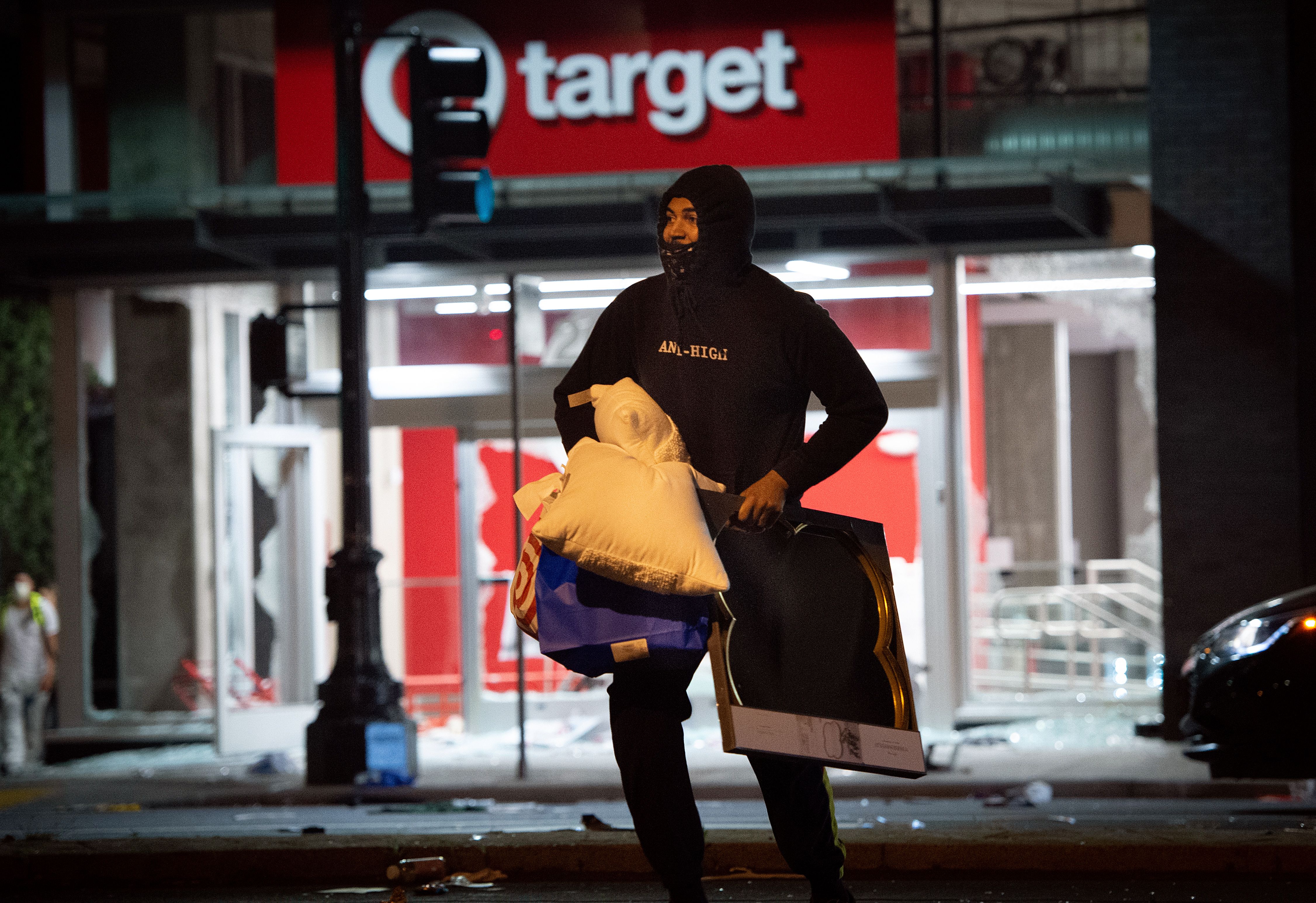The daily business briefing: June 1, 2020
Target and other retailers close stores as unrest continues, Hong Kong shares surge as China data improves, and more


- 1. Target, other retailers close stores as unrest continues
- 2. Hong Kong stocks surge despite Trump vow to end special status
- 3. Report: China tells state-run firms to halt U.S. farm-good purchases
- 4. Netherlands court tells Nestlé to change name of 'Incredible Burger'
- 5. U.S. stock futures edge down amid unrest, China tensions
A free daily email with the biggest news stories of the day – and the best features from TheWeek.com
You are now subscribed
Your newsletter sign-up was successful
1. Target, other retailers close stores as unrest continues
Target Corp. announced Sunday that it was temporarily shutting or limiting hours at 200 stores as protests over the police killing of George Floyd in Minneapolis continue. Retail outlets in several cities have been looted, adding to their problems as they struggle to reopen after coronavirus lockdowns. In Los Angeles, for example, numerous upscale stores were broken into, including Alexander McQueen on Rodeo Drive and Nordstrom and Apple in the nearby Grove Shopping Center. "We hope to reopen our doors as soon as possible," Nordstrom said in a statement said. "We had impacts at some of them and are in the process of assessing any damage so we can resume serving customers." Apple said it would keep some of its stores closed on Sunday. Amazon is limiting deliveries in some cities.
2. Hong Kong stocks surge despite Trump vow to end special status
Hong Kong stocks surged on Monday despite President Trump's vow to end the financial hub's special trading status due to China's push to increase its control over the former British colony. Hong Kong's Hang Seng Index gained more than 3 percent on the first day of trading since Trump said the U.S. would "begin the process of eliminating policy exemptions that give Hong Kong different and special treatment" from the rest of China. Hong Kong officials and analysts questioned how much effect such a move by Trump would have, noting that Hong Kong does not export many goods to the U.S. Monday's gains came as China reported an unexpected increase in manufacturing activity in May, although at a sluggish pace as the world's second largest economy struggles to recover from a downturn during its coronavirus crisis.
The Week
Escape your echo chamber. Get the facts behind the news, plus analysis from multiple perspectives.

Sign up for The Week's Free Newsletters
From our morning news briefing to a weekly Good News Newsletter, get the best of The Week delivered directly to your inbox.
From our morning news briefing to a weekly Good News Newsletter, get the best of The Week delivered directly to your inbox.
3. Report: China tells state-run firms to halt U.S. farm-good purchases
The Chinese government has told major state-run agricultural companies to halt purchases of some U.S. farm goods as tensions rise between the two countries over Hong Kong, Bloomberg reported Monday, citing people familiar with the matter. Officials reportedly ordered state-owned traders Cofco and Sinograin to suspend purchases of soy beans and other goods, although Beijing did not tell private companies to do the same. Chinese buyers also have canceled some orders of U.S. pork, one of the sources said. The renewed tensions raised concerns about the future of the phase-one trade deal the world's two largest economies reached in January after President Trump launched a series of tit-for-tat tariffs over China's trade policies.
4. Netherlands court tells Nestlé to change name of 'Incredible Burger'
A court in the Netherlands ordered Nestlé to change the name of its plant-based "Incredible Burger" to "Sensational Burger" in Europe, ruling that the original name infringed on trademarks owned by U.S.-startup Impossible Foods. The District Court in The Hague gave the Swiss food giant four weeks to remove its "Incredible Burger" from stores or face daily fines. The injunction requested by Impossible Foods is part of a fight among companies trying to grab bigger shares of the growing market for vegetarian products rivaling the taste of meat. Nestlé vowed to appeal, saying it was "disappointed by this provisional ruling as it is our belief that anyone should be able to use descriptive terms such as 'incredible' that explain the qualities of a product."
A free daily email with the biggest news stories of the day – and the best features from TheWeek.com
Financial Times The Wall Street Journal
5. U.S. stock futures edge down amid unrest, China tensions
U.S. stock index futures fell early Monday, starting June on a down note after two straight monthly gains. Futures for the Dow Jones Industrial Average, the S&P 500, and the Nasdaq all declined by 0.1 percent to 0.5 percent several hours before the opening bell. Several factors were dampening investor sentiment, including unrest across the country over police killings of African Americans. Rising tensions between the U.S. and China over Beijing's effort to increase its direct control of Hong Kong also raised concerns. "Nothing that has happened since the market closed on Friday has been market positive," said Art Hogan, chief market strategist at National Securities.
Harold Maass is a contributing editor at The Week. He has been writing for The Week since the 2001 debut of the U.S. print edition and served as editor of TheWeek.com when it launched in 2008. Harold started his career as a newspaper reporter in South Florida and Haiti. He has previously worked for a variety of news outlets, including The Miami Herald, ABC News and Fox News, and for several years wrote a daily roundup of financial news for The Week and Yahoo Finance.
